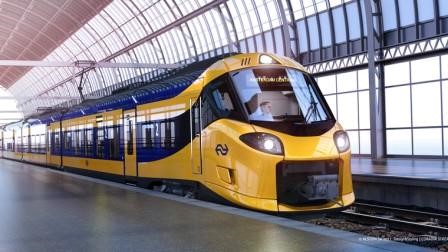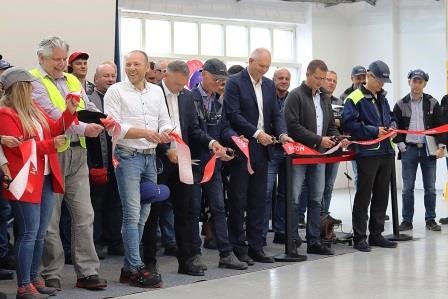

The largest producer and exporter in the Polish railway industry, Alstom, which employs over 4000 people in 11 sites and has operated for over 25 years in Poland, launched an aluminium welding line at its rolling stock production plant in Wrocław.

As part of the sustainable mobility strategy and development trends in the rail industry, this investment replaces heavier and more challenging to process steel with lighter and more efficient aluminium, e.g. due to its high strength-to-weight ratio and corrosion resistance.
An investment of almost €10 million in Alstom's Wroclaw aluminium welding line includes new equipment and machinery, infrastructure upgrades, and employee training. Alstom's Wroclaw plant will be able to acquire new projects and produce aluminium boxes for regional trains in Europe due to the investment.

Likewise, this investment will enhance the competencies of staff from different departments in the plant. In Wroclaw, Alstom Konstal, which has produced complete vehicles for foreign carriers for many years and has been an expert in aluminium welding for many years, actively supports the implementation of new technology: POP regional trains for Italy's Trenitalia or ICNG trains for the Netherlands.
Slawomir Cyza, the President and Managing Director of Alstom in Poland, Ukraine and the Baltic States, said, “Alstom is at the forefront of aluminium welding technology in rolling stock production in Poland and will continue to develop and popularise this technology, which is more efficient and environmentally friendly than conventional steel.
"Aluminium has many advantages over stainless steel in train construction. Aluminium guarantees a lower weight of trains, which in turn contributes to using less energy to power the train and thus lower CO2 emissions. At the same time, the reduced weight of the carriage means that train speeds can be higher even on existing railroad tracks."
Steel is increasingly being replaced by aluminium in the rail industry as a primary material for trains. In the rail industry, these innovations have been adapted from the aerospace industry, where the pressure to develop lightweight materials is excellent. Due to its high formability, aluminium can be easily machined into any shape, and excess material can be recycled. As a result, the production cycle of trains is shortened.



Responses






